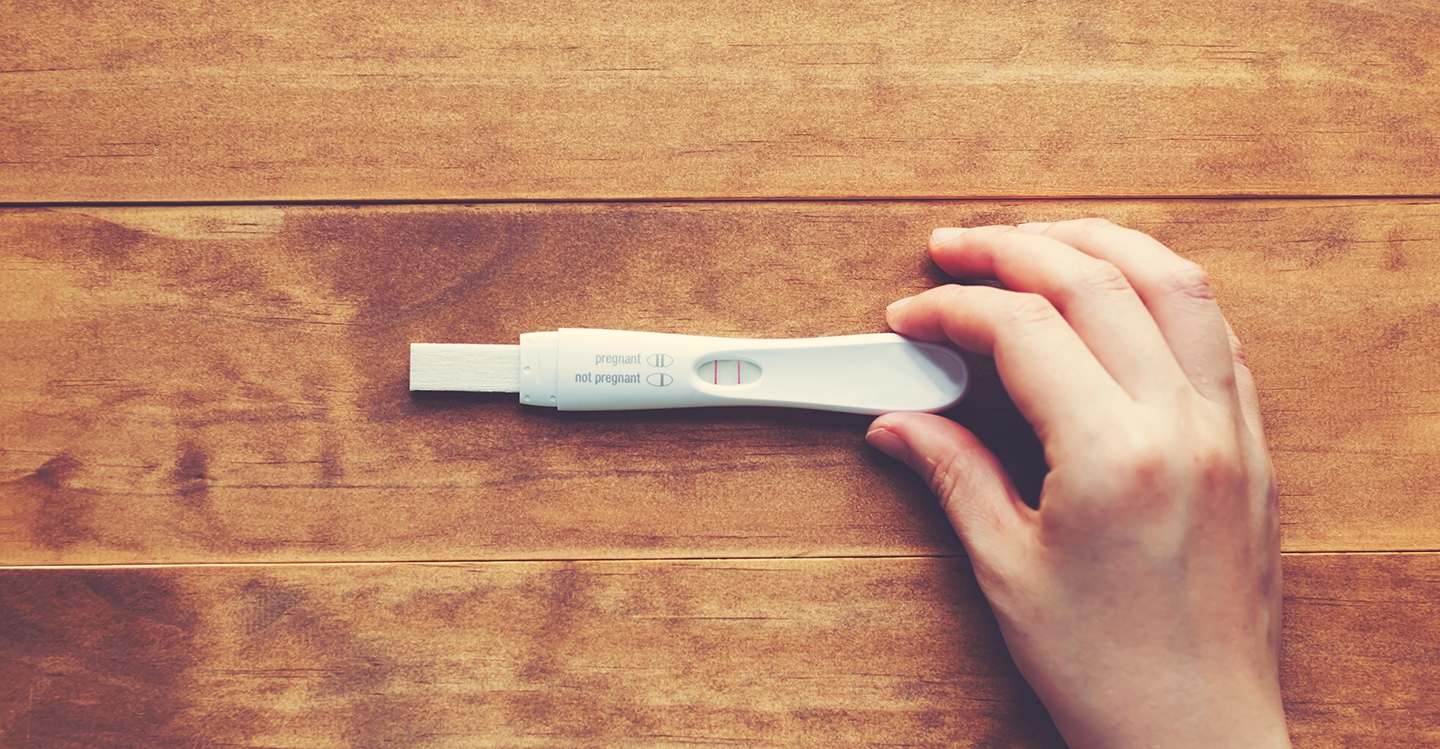What do pregnancy tests detect?
Nearly all pregnancy tests work by detecting a hormone in your blood or urine called human chorionic gonadotropin (thankfully called hCG for short). Because hCG is produced by your placenta, you will only produce it when you are pregnant. The placenta plays an important role in the support and development of a growing baby and will start to develop soon after conception.
For that reason, if you use a pregnancy test incorrectly or it’s faulty, it’s more likely the test will show a false negative rather than a false positive – although this can sometimes happen too. False negatives can occur if you use the test too early or your urine is diluted by other compounds.
How do pregnancy tests work?
The most common home pregnancy tests work by reading a sample of your urine, either by you peeing on a stick or into a cup and then inserting a dipstick. If you’re pregnant and the test is working properly, it’s highly likely that you will receive a positive reading i.e. it will detect the hCG and indicate that you’re pregnant.
How this is indicated by the pregnancy test varies widely depending on the manufacturer, so read the instructions closely. Methods for indicating the results include dots, colours, stripes and digital readouts.
When do I take a pregnancy test?
Again, this could vary depending on the manufacturer. However, the most accurate readings are generally when you take a test a week after you have missed your expected period. Although hCG production will have started earlier, at this stage it will have built up in your body and you should get a fairly reliable reading.
How can I be sure I’m pregnant?
No test can claim 100% accuracy, although many claim over 99%. Even if you have received a positive reading on your home test, you should visit a doctor as soon as possible to receive further confirmation.
Although a doctor might offer another urine test, they can also take a blood test – which will be more sensitive to hCG and therefore more accurate. Doctors’ tests can detect hCG as early as 11-14 days after conception.
Whether you are trying to fall pregnant or this has come as a surprise to you, it’s important to see a doctor early and receive confirmation. This is also the case if you suspect you’re pregnant, but tests have shown negative results. Pregnancy brings with it many lifestyle changes and choices, and the earlier you’re informed the better your health outcomes will be.



